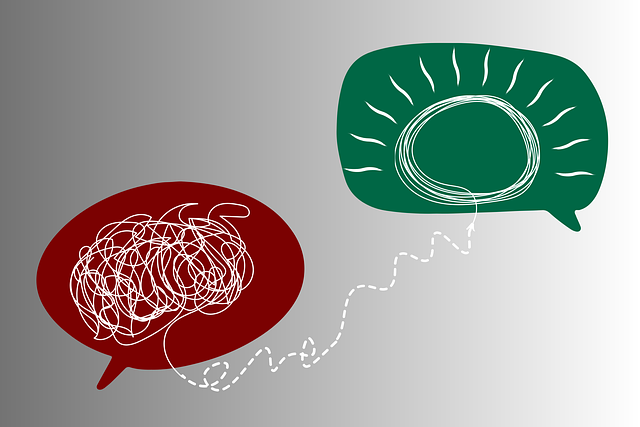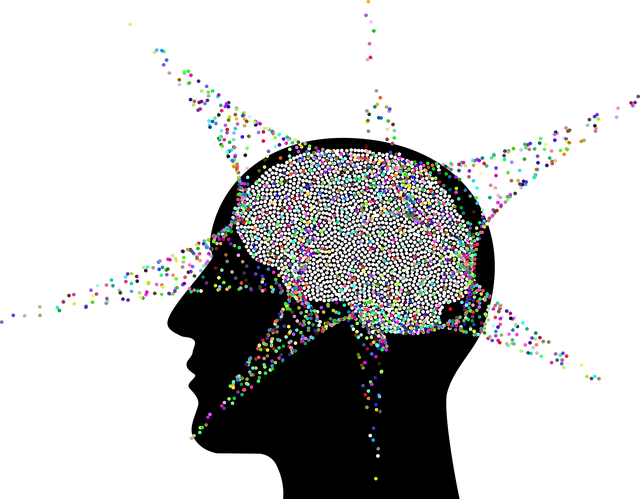Emotional Intelligence (EQ) therapy is a vital tool for Highlands Ranch parents dealing with postpartum depression, addressing emotional challenges holistically. This specialized support focuses on recognizing and managing emotions, reducing stigma, and fostering self-awareness and resilience. Through targeted interventions like mindfulness and active listening, EQ therapy equips new parents with coping strategies to navigate the emotional landscape of parenthood, benefiting both mother and child.
Emotional intelligence (EI) plays a pivotal role in our mental health, especially for new parents navigating the complexities of parenthood. This article explores how understanding EI can help combat postpartum depression, a common yet often overlooked issue among new mothers in Highlands Ranch. We delve into signs to recognize, strategies for building EI post-birth, and the transformative power of therapy in enhancing emotional well-being for parents in this vibrant community.
- Understanding Emotional Intelligence and its Impact on Mental Health
- Recognizing the Signs of Postpartum Depression in New Mothers
- Strategies for Building Emotional Intelligence after Giving Birth
- The Role of Therapy in Enhancing Emotional Well-being for Highlands Ranch Parents
Understanding Emotional Intelligence and its Impact on Mental Health

Emotional intelligence (EQ) is a crucial aspect of overall well-being, significantly influencing mental health and happiness. It involves recognizing, understanding, and managing one’s own emotions, as well as empathizing with and responding to the emotions of others. For individuals in Highlands Ranch facing challenges like postpartum depression, developing emotional intelligence can be transformative. Postpartum depression therapy often includes strategies for enhancing EQ, which in turn promotes inner strength development and emotional well-being promotion techniques. By learning to navigate their own emotional landscapes and fostering empathy, parents can reduce symptoms of mental illness stigma and cultivate healthier relationships.
Highlands Ranch postpartum depression therapy emphasizes the interconnectedness of mental health and emotional intelligence. Through targeted interventions, individuals gain the tools to recognize subtle emotional cues, regulate their responses, and offer compassionate support to themselves and others. This process not only aids in managing existing mental health conditions but also equips individuals with lifelong skills for navigating complex interpersonal dynamics, thereby fostering a more robust sense of self-awareness and resilience.
Recognizing the Signs of Postpartum Depression in New Mothers

Many new mothers experience a rollercoaster of emotions after giving birth, but when these feelings don’t subside and start to interfere with daily life, it may indicate postpartum depression (PPD). Recognizing the signs early on is crucial for Highlands Ranch mothers seeking support. PPD can manifest in various ways, from intense sadness and anxiety to fatigue, sleep disturbances, and changes in appetite. Some mothers might feel overwhelmed, hopeless, or constantly worried about their newborn’s health.
If a new mother struggles with self-esteem, finds herself unable to bond with her baby, or experiences a significant shift in her ability to show empathy—normally a strength for new parents—it could be a red flag. Fortunately, therapy and support groups are available in Highlands Ranch to help mothers navigate these challenging feelings. Building emotional intelligence through self-awareness, self-care practices, and empathy-focused strategies can also play a vital role in promoting the emotional well-being of both mother and child.
Strategies for Building Emotional Intelligence after Giving Birth

Becoming a new parent is an incredibly rewarding yet challenging experience. The intense physical and emotional changes can take a toll on a woman’s mental well-being, leading to increased risks of postpartum depression. Highlands Ranch offers specialized support through postpartum depression therapy for those navigating these turbulent times.
Strategies for building emotional intelligence during this period are crucial for self-care and connecting with others. Empathy building strategies, such as active listening and practicing mindfulness, can help new mothers process their emotions and understand their partner’s or support system’s feelings. Mental illness stigma reduction efforts also play a vital role in encouraging open conversations about postpartum struggles. Additionally, stress management techniques like deep breathing exercises and setting realistic goals can alleviate pressure, fostering a healthier emotional state.
The Role of Therapy in Enhancing Emotional Well-being for Highlands Ranch Parents

In the vibrant and bustling community of Highlands Ranch, parents often face unique challenges that can impact their emotional well-being, especially during postpartum periods. This is where therapy steps in as a powerful tool for enhancement and healing. For many new parents, navigating parenthood can be overwhelming, leading to feelings of anxiety, stress, or even postpartum depression. Therapy provides a safe and nurturing space to explore these emotions, offering support tailored to individual needs.
Highlands Ranch postpartum depression therapy is not just about treating symptoms; it’s a holistic process that empowers parents to develop coping mechanisms and improve their overall mental health. Through compassion cultivation practices and cultural sensitivity in mental healthcare, therapists help individuals understand and manage their emotions effectively. By incorporating burnout prevention strategies for healthcare providers into therapy sessions, new parents can learn to prioritize self-care, fostering resilience and a positive mindset as they navigate the joys and challenges of parenthood.
Emotional intelligence plays a pivotal role in maintaining mental health, especially post childbirth. Recognizing and addressing postpartum depression in new mothers is crucial, as it can significantly impact their emotional well-being. Through understanding the signs, adopting effective strategies, and availing therapy for Highlands Ranch parents, there’s a promising path to enhancing resilience and nurturing both mother and child. Effective intervention, including therapy tailored to Highlands Ranch Postpartum Depression, can facilitate a transformative journey towards improved mental health.














